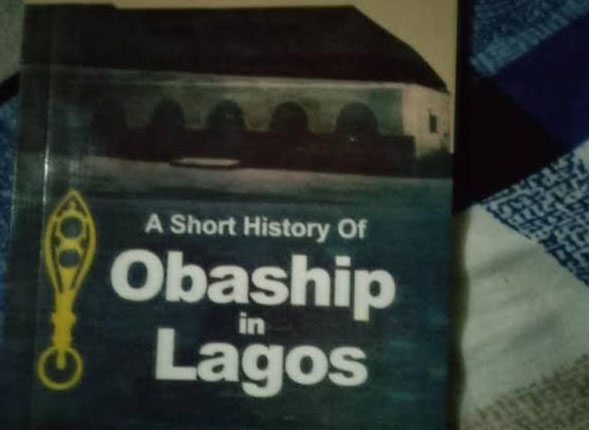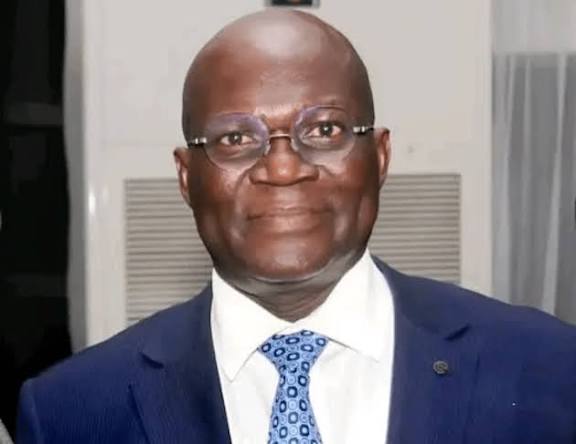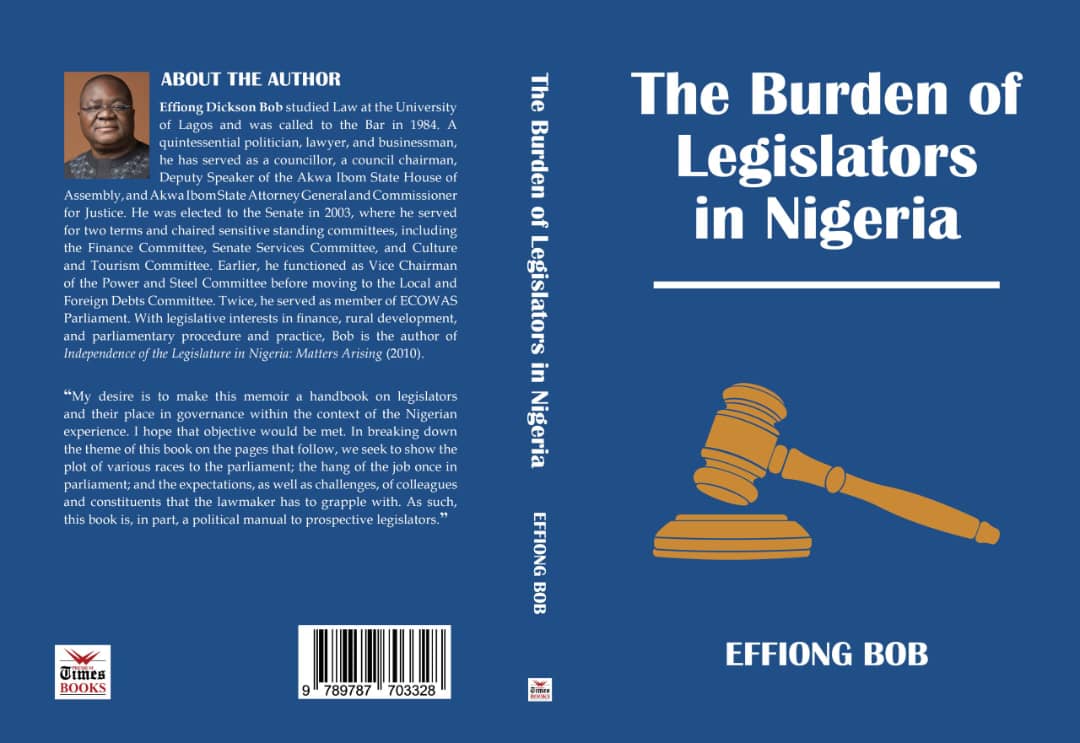
.Deepens knowledge of traditional institution, communal settlement
Prince Tajudeen Oluyole Olusi is a seasoned politician. But behind his politics is his grasp of the history of Lagos. He has authored so many essays and books, which document and provide insights into an understanding of why things are the way they are.
Over the years, many have, in their own construct, written the history of Lagos. Prince Olusi has, however, gone beyond just knowing Lagos, but providing details about the emergence of obaship in the town.
In the book, Essays and Evidences Relating To Lagos Obaship and Chieftaincies, the history of Lagos, societal events, issues and traditions of Lagos are succinctly captured. It goes deeper into providing gray areas in oba and chieftaincy appointments.
Not being categorical about dates in which the obas so discussed emerged; he concentrates on the intrigues, dynastic rivalries and succession disputes and controversies following emergence of some obas, some of whom he unveils in the essay Evidences.
Part one of the book is devoted to essays, while the second part is devoted to evidences, especially as it affects Lagos Obaship and Chieftaincies. His 258-page book was first published in 2019. The reprint was done in 2023.
Part one is made up of essays such as, a review of the book, EKO, Landmarks of Lagos, Nigeria.
In the second essay, he traces the history of Adamu Orisa Play of Lagos ‘Eyo’. In 10 pages, he captures the emergence of the play tradition, its performances, the ritual and everything about its activities.
From page 17, he pays tribute to the late Oba Oyekan II. But beyond his tribute, he also looks at the emergence of different chieftaincy titles and their ranking in the scheme of things.

He also looks at issues such as conflict resolution. The book is not just a compendium on Lagos; it gives that air of confidence of a writer who has the history of his community, town and village in his hand. And this is what dominates the entire space of the book in the evidences that the writer provides to prove wrong doings in some appointments.
Written in lucid language, the book is a good material for scholars and researchers.
In his, The Colonial Manipulations of the Obaship Institution and the Olusi Dynasty in Lagos, 1865-1945, Prof Siyan Oyeweso rereads the life of this man in a manner that is lucid and succinct. His work is no far from what has been done in Do Not Be A Low Mean Man, The Story Of A Prince Of Peace, a 393-page book that traces the story of his life and humble beginning. With a foreword written by the late Alhaji Lateef Kayode Jakande, there is an `attempt to unveil the character of the man, who is a considered a Prince of Peace. Jakande says “Olusi has lived a life of honour and service for which he gives the credit to his father. He is an admirable product of deep parental love and unsparing discipline.”
In 19 chapters, the book takes an overview of the man. His birth, education, establishment as a family man, man of Islam and man of politics are all interrogated in a manner that shows the book as worthy of beholding.
While Prince Tajudeen was born on October 13, 1936, he showed signs of greatness at a very young age. He excelled at his Baptist Primary School, Araromi, Lagos between 1945 and 1947 and United Middle School, Tamale in Ghana from 1952 to 1954. He had his secondary education at Ansar-Ud-Deen College, Isolo between 1955 and 1958 and the Lagos Centre for Higher Studies. He also studied at Yaba College of Technology, Lagos.
Prince Tajudeen began his working career in the former Lagos Town Council as a Clerk between 1959 and 1962. He also worked at ESSO (now part of Oando Petroleum) as an Assistant Employee Relations Officer from 1964 to 1968. Apart from his experience in the business world, he was also involved in the Lagos politics.
In 1962, he contested for the councilorship office in the Lagos Town Council. He won that election at the age of 26 under the platform of Chief Obafemi Awolowo’s Action Group (AG) party. Owing to his remarkable performance in office, he was returned for the second time by his constituency and was in office before the 1966 coup that saw a collapse of government in Nigeria.
Although, Prince Tajudeen went back to his business after the military take-over, he was later recalled to serve his people. He was appointed by the military government in 1972 to serve in the Lagos City Council till 1975.
He was re-appointed in the same council after this year. Meanwhile in 1976, he won another election as a councilor and narrowly missed being made a Chairman of Lagos Island. The chairmanship election he won by a margin of 17 to 13 was annulled by the military government on allegations that he was an ally of Chief Obafemi Awolowo.
The experience of Prince Tajudeen with the military government did not deter his ambition and association with the Chief Obafemi Awolowo’s group. When the ban on politics was lifted in 1979, Prince Tajudeen teamed up with his allies in the Unity party of Nigeria (UPN). In the party, Prince Tajudeen emerged as that first Secretary of the Lagos Division of UPN. He won the party’s ticket and support to represent Lagos South into the Federal House of Representative election.
He won that election and went ahead to represent his constituency. He was appointed a member of the Rules and Business Committee and Social Welfare and Veteran’s Affairs Committee of the House. He was very active in these committees. It is on record, for instance, that Prince Tajudeen led the country’s House delegation to the 1982 Commonwealth Games in Brisbane, Australia. His activism in the Party and the House therefore earned him a re-election campaign in the 1983 Federal House of Representative election. His second term tenure in the House was however terminated by the military take-over of that year.
Oyeweso captures his story poignantly, “when the ban on politics was lifted again in 1990, Prince Tajudeen Olusi teamed up with his allies in the Social Democratic Party (SDP). He was elected the Vice-Chairman of the party for Lagos State. He held that position until 1993 when he assumed the chairmanship position of the party in 1993. As the hope of SDP was dashed by the annulment of the June 12 presidential elections, Prince Tajudeen found other means to be useful to the Lagos community. Due to his vast experience and contributions to community, he was appointed a commissioner in the Olagunsoye Oyinlola administration of Lagos State where he was described as the informal leader of the cabinet by Mr. Fidelis Adeyem, the Secretary to the State Government (SSG). Also in that administration were notable figures like Engr. Funsho Williams, Prof Ekundayo Simpson, Abel Yusuph, Prince Ogunleye, among others.
“Apart from this period, Prince Tajudeen Olusi has continued to function in the socio-political landscape of the Lagos and Nigeria. In 1998 when the military announced its decision to hand-over finally to civilian government, Prince Tajudeen was not left out in the scene. He aligned with his party allies in the Alliance for Democracy (AD), where he was also one of the founding fathers. It is on record that the AD won virtually all elective posts in Southwestern Nigeria in the 1999 general elections. However, while some members of the AD transformed into the Action Congress (AC) and the Action Congress of Nigeria (ACN) under the leadership of Asiwaju Bola Ahmed Tinubu, Prince Tajudeen Olusi remained within party.
 Oyeweso says: “To a very large extent, Prince Tajudeen Olusi has no doubt carved a niche for himself in the Lagos socio-political system. He is a bigwig in the party. He is a strategist and has always been careful about his association in political parties which explains some of his political ideologies. A look at his political profile shows that he has always been on the winning side, from the Awolowo era till the Asiwaju Bola Tinubu’s period in the Action Congress of Nigeria (ACN). Many have referred to this group as the party of the progressives because of its history in promoting growth and development in the society.”
Oyeweso says: “To a very large extent, Prince Tajudeen Olusi has no doubt carved a niche for himself in the Lagos socio-political system. He is a bigwig in the party. He is a strategist and has always been careful about his association in political parties which explains some of his political ideologies. A look at his political profile shows that he has always been on the winning side, from the Awolowo era till the Asiwaju Bola Tinubu’s period in the Action Congress of Nigeria (ACN). Many have referred to this group as the party of the progressives because of its history in promoting growth and development in the society.”
He adds, “in addition to his political activism, Prince Tajudeen Olusi has also proved his mettle in business. He is a Director in Eko Hotels Ltd. and Chairman, Asake (Nig) Ltd. In the area of community service, Prince Tajudeen Olusi shone brilliantly. He associates well with his community which also explains the support he always had from them from his youthful age in politics. Today, Prince Tajudeen Olusi is a lifelong member of the Boys Scout Movement in Nigeria and the first National Vice-President of Zumratul-Ul-Islammiyah Society. He was once the Chairman of Lagos State Pilgrims Board.
“Also, due to his long stay and activism in Lagos, Prince Olusi is now referred to as a community historian with vast experience and knowledge in virtually every aspect of Nigeria’s social, economic and political system. As a prince from Lagos, he has always been passionate about the socio-economic development of Lagos. His humility, frankness and ability to build strong relationship attracted many people to him. Also, according to the former Chairman of Island Club, Anibaba Seriki, Prince Tajudeen Olusi has done so much for the Akinsemoyin and Ado royal families, and his sustained interest in Lagos.”
“ Over the years, the history of the Obaship institution in Lagos has been characterised by dynastic rivalries. Indeed, succession disputes are more often than not recurring decimal in the vibrant traditional diplomatic power relations that the city is known for. Admittedly, the multiplicity of dynasties laying claims to the throne at various times and the intricacies of the selection process could be blamed for this state of affairs. However, even more significant is the fact that the emergence of Europeans from the mid-nineteenth century, especially the British, on the shores of Lagos added some twists to the politics of the Obaship institution,” says Oyeweso.
In his Short History of Obaship in Lagos, also looks at the traditional institution and the intrigues that have characterized the emergence of obaship. It is a narrative around the early settlers of Lagos, relationship with Bini and who the Awori are. The highly controversial book also takes some of the expressed opinion from his newspaper interviews in respect to the history of Lagos.





